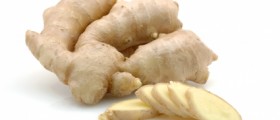
Juniper Berries
Many people around the world may not be familiar with juniper berries and its characteristics, since it is most common in Europe, and in regions which especially abound in plain territories. As far as its origin is concerned, it is a member of the pine family, and, as a matter of fact, it has many different names. Some of them are: juniperi fructus, common juniper, but probably the best known is the juniper berry. In terms of size, it is small and the maximum height it can reach is that of 10 feet. Berries, which are common to female plants first have a green color and then as time goes by and they become more ripe, their color changes into a bluish-black one. Also, juniper’s pine cones are soft and meaty.
Among its main active components, we can find calcium, volatile oil, copper, carbohydrates, essential oils, fiber, fat, potassium, proteins, vitamin C and many more. The volatile oil (essential oil) is comprised of sugar, flavonoid glycosides, resin and terpenes. Of all these, probably the most important one is terpinen, which stimulates kidneys and raises their filtration rate to a higher level. Its second most important component is flavonoid - amentoflavone which acts as a antiviral substance.
Health benefits of Juniper Berries
As far as its health benefits are concerned, this plant has been actively employed in herbal medicine for quite some time as a cure for cancer and skin growths, irritated stomach and kidney diseases, and many more related conditions and diseases. The nature itself enriched this plant with insulin which gives it the ability to cure the pancreas. Furthermore, it can provide a lot of help in treating various urinary infections and water retention issues. In herbal medicine of today, it is used as a medicine for treating cystitis and urethritis, given the fact that it possesses antiseptic properties. Other benefits include it ability to cure digestion disorders (e.g. heartburn), diabetes and even menstrual problems. It also acts favorably on increasing appetite and relieving gas problems. As an anti-inflammatory medicine, it aids in diminishing inflammations and ache which is the consequence of arthritis, gout and rheumatism.
Precautions
Like all medicines, one should be extremely careful with the dosage and its consumption. Namely, the usual and recommended is 1,000-2,000 mg on a daily basis, taken in 3 doses. If exceeding this limit, a person may bring about kidney irritation, excessive concentration of blood in the urine, diarrhea, high blood pressure and rapid heartbeat. One more advice and warning is that it is not to be applied to open wounds under no circumstances, for it may have extremely negative side effects.

















Your thoughts on this
Loading...